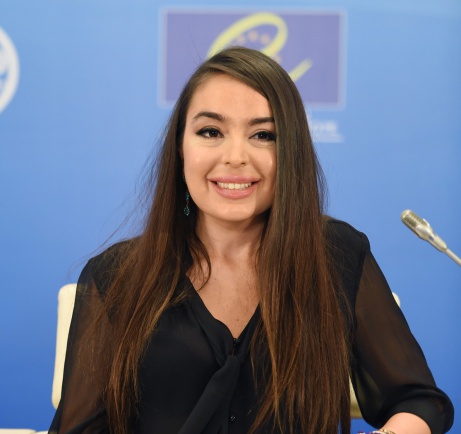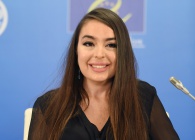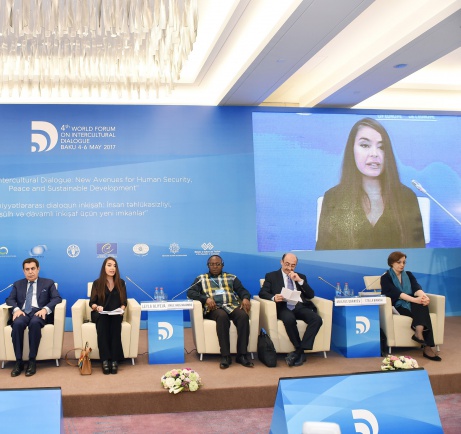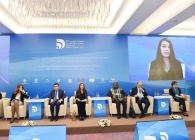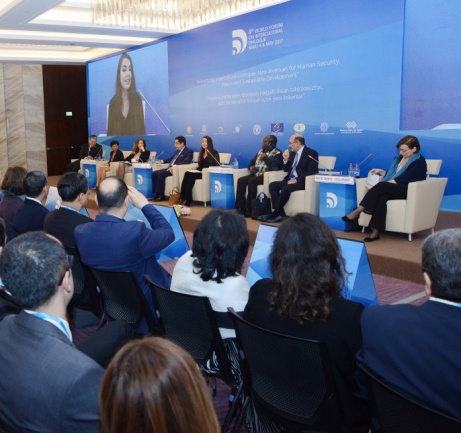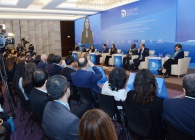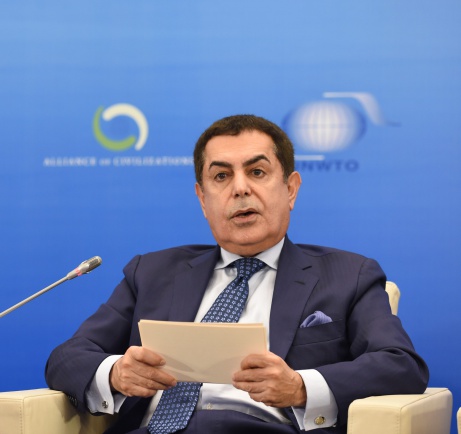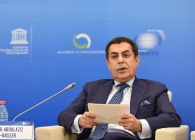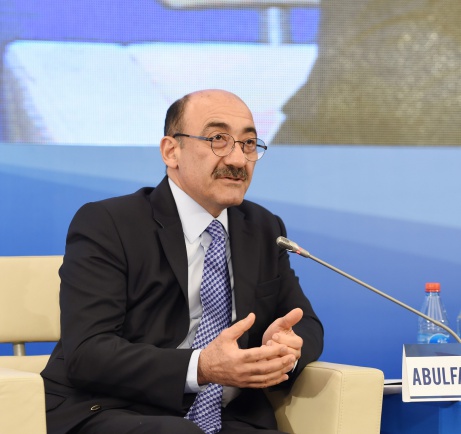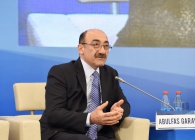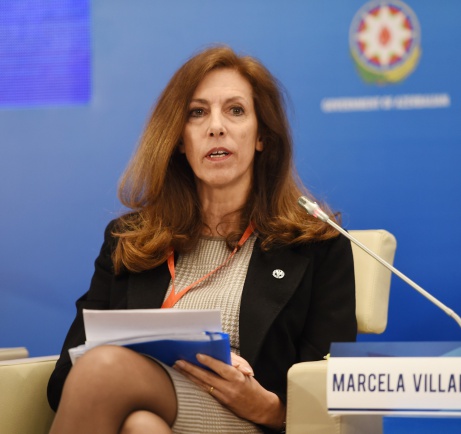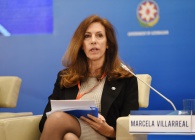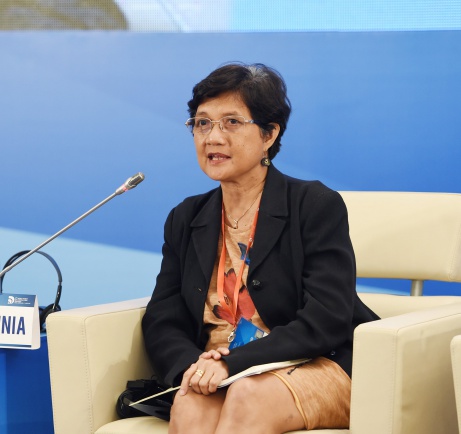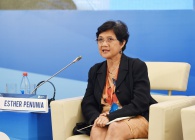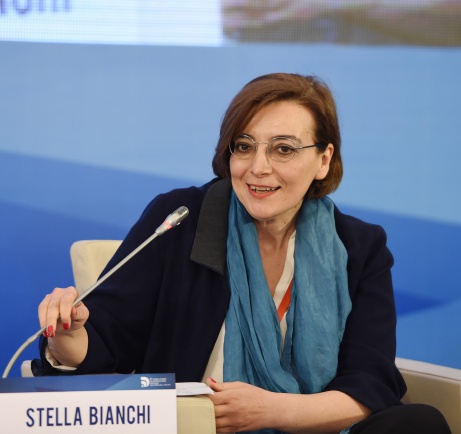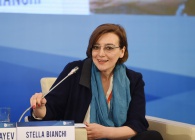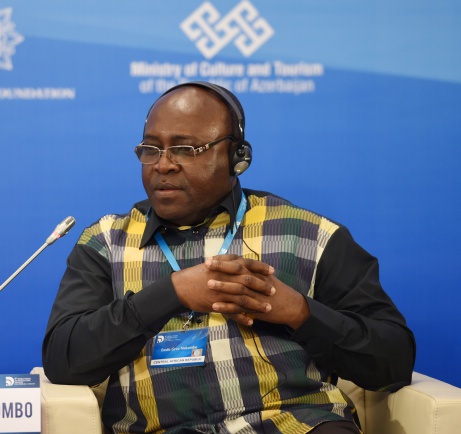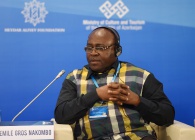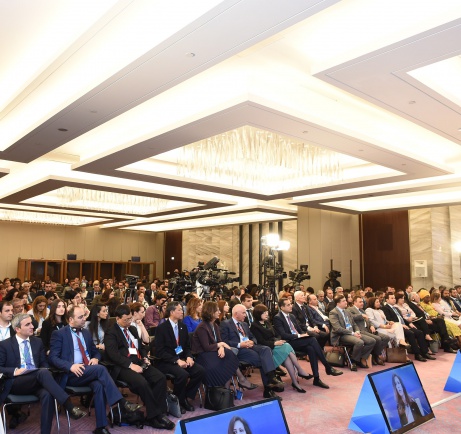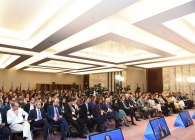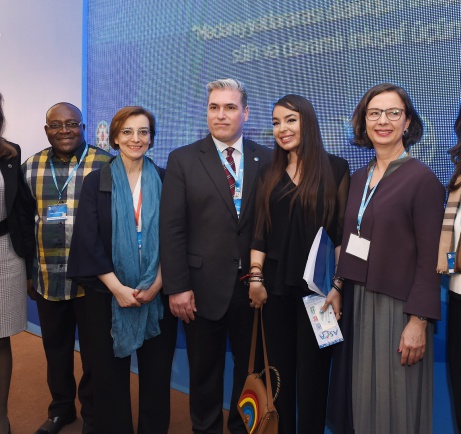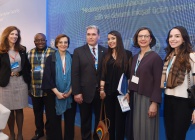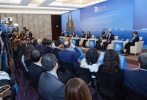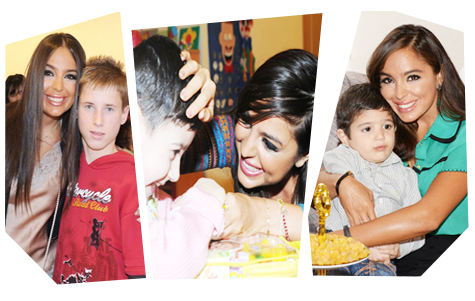
Family values are deep-rooted in Azerbaijan, and have been passed down from generation to generation since time immemorial. Care of youngsters, and respect for the elderly are cherished traditions in our country.

The second plenary session on the topic “Intercultural dialogue, food security and community resilience: essential elements in achieving sustainable development and peace” took place in the framework of the 4th World Forum on Intercultural Dialogue, May 6.
Goodwill Ambassador of the UN Food and Agriculture Organization, Vice-president of the Heydar Aliyev Foundation Leyla Aliyeva attended the session.
Attaché of the UN Food and Agriculture Organization’s Office of the Secretary General, moderator Rashad al-Khafaji underscored that the session was dedicated to a very important for the contemporary world issue, and thanked the Azerbaijani leadership for the high-level organization of the 4th World Forum.
Then Leyla Aliyeva addressed the session:
Ladies and gentlemen,
Distinguished guests,
First, I would like to welcome all guests of the Baku Forum. It is very encouraging that people from all around the world have come together to discuss ways to advance intercultural dialogue.
Dialogue among cultures is the only key to world peace and prosperity. There is no acceptable alternative to such dialogue. The less dialogue we have, the more vacuum there will be for hate and ignorance.
For centuries, Azerbaijan has been a place, where various cultures, religions and civilizations merged. Throughout history, all people in Azerbaijan, be they Muslims, Jews or Christians, have enjoyed peaceful coexistence. In fact, no one perceived or called it ‘intercultural dialogue’ – interaction was simply a part of everyday life.
So, it is only natural that my dear hometown, Baku, has now become a centre for intercultural dialogue - a place, where people from all parts of the globe and walks of life gather to make this world a better place.
I am especially thrilled to address this plenary session, whose theme has special significance to me both as a FAO Goodwill Ambassador and as a passionate environmentalist. The close link between food security, peace and sustainable development is what makes this event so relevant and necessary nowadays.
We all know that intercultural dialogue is an important counterforce against the global surge of racism and violence. However, its scope goes far beyond the promotion of ideas of tolerance and co-existence. Intercultural encounters also give birth to innovative ways to reach our common goals.
The adoption of the 2030 Agenda for Sustainable Development was a milestone event for the global community in its mission to ensure the well-being of both people and the planet. It is not a coincidence that the first two goals of the Agenda focus exactly on eradicating poverty and hunger. This reflects the common understanding that only by meeting these very goals we can build peaceful, inclusive and sustainable societies.
It is heartbreaking that, in the 21st century, 870 million people in the world still suffer from hunger and malnutrition – all at a time when more than a third of food is thrown away globally. Climate change is making the situation with global food security even more uncertain. At the same time, globalization has led to a loss of traditional knowledge and agricultural biodiversity.
Throughout history, cultures and nations have developed countless ways of growing and cooking food. Preserving and sharing these traditions improves food security, strengthens community resilience, and contributes to sustainability and peace.
Sharing of food is in itself a form of cultural dialogue. The culture of cuisine provides people with the opportunity to come closer together, overcome prejudices, and better understand various lifestyles.
As climate change threatens our ecosystems and rural populations, it is absolutely critical for us to achieve resilience, productivity and sustainability in agriculture.
In this regard, I would like to recall the theme of 2016 World Food Day: “the climate is changing, food and agriculture must too”. This means that fulfilling our vision of a world without hunger will require changing the way we produce and consume food.
Dear friends,
When dealing with such universal issues as food security and sustainable development, no country or organization can do it alone. Dialogue is crucial in translating the global development agenda into action. Constructive conversations on the environment and sustainability pave the way for fruitful partnerships that yield positive results for both nature and people. With this in mind, we founded the International Dialogue for Environmental Action – IDEA in 2011.
Our intention was simple - to become a public platform and to ensure greener, safer and healthier future for the young generation. Our slogan speaks for itself – “One Earth, One Future”.
The scope of IDEA’s projects ranges from education and awareness-raising to conservation, fight against pollution and sustainable development. Over the past few years, our relatively young organization has been able to plant more than 5 million trees throughout the country, save the endangered gazelle from extinction, and launch many other conservation projects.
Among our current initiatives are projects to save the Caucasian leopard and reintroduce the bison in the Caucasus. Also, in the context of our efforts to save the Caspian sturgeon, last year IDEA launched the multi-dimensional Kura river delta cleaning project. The aim of the project is to improve fish stocks, water quality and the overall ecology of riverside areas.
I am also pleased to note that, several weeks ago, a joint project on establishing fruit gardens for low-income residents of Azerbaijan was launched in cooperation with FAO. By providing households in rural areas with land plots and fruit trees, the project will enable them to generate income in a sustainable way.
Regardless of our race, religion, traditions and beliefs, we all live on the same planet and have a common future. Environmental challenges know no borders. The harsh reality is that those human activities that violate the laws of nature will bring us to great global calamities. People should know the value of the treasures they hold before losing them completely.
Everyone’s actions, lifestyles and habits have an impact on the environment in one way or another. Hence, everyone must do their part to ensure our common sustainable future.
Dear guests,
I am hopeful that during your few days in Azerbaijan, you had a chance to taste our delicious cuisine, visit our cultural sights and interact with local people. I am confident that this experience will enhance your ability to appreciate the power of diversity.
Exposure to diversity and dialogue builds bridges of understanding between groups, which naturally helps to reduce conflict and tension. Such bridges are not built at official meetings or negotiations, but rather behind the scenes, during friendly and informal conversations, lunchtime meet-ups and coffee breaks. With this in mind, I encourage all of you to remain open to dialogue at all times.
I wish you happiness, love and prosperity.
Thank you.
XXX
High Representative for the UN Alliance of Civilizations Nassir Abdulaziz Al-Nasser, Minister of Culture and Tourism of Azerbaijan Abulfas Garayev and UN’s FAO Director of Office for Partnership, Advocacy and Capacity Development Marcela Vilarreal spoke at the session.
Forum participants were delivered a video-message on behalf of FAO in connection with food issue. The message emphasized that every man, every woman and every child in the world should be provided with healthy food they need.
Moderator of the session Rashad Al-Khavaji talked about the role of the intercultural dialogue in ensuring food security and thanked FAO for the participation in the “Baku Process”.
Then, the session continued its work in discussions.

